Boiler Installation Lennoxtown
Best Boiler Installation in Lennoxtown
Receive multiple Boiler Installation quotes for your project today! Compare profiles, reviews, accreditations, portfolio, etc... and choose the best deal.

Richardson Gas & Heating Limited
522 reviews12 First Avenue, Dumbarton, G82 2PU, GBAt Richardson Gas & Heating we are a fully insured Gas Safe registered company with over 12 years experience installing, servicing and repairing all gas appliances and heating systems for customers all over the west of Scotland and Central Belt. We understand that the failure of your heating system can be a worrying time for homeowners. That's why we're available 24 hours a day, 365 days a year. Whatever you need to know about heating options for your home, we have experience and in-depth knowledge to clearly and simply explain what's available. You can call us and we can visit you at your home. You can be sure our advice and recommendations are completely impartial. We've built partnerships with many of the stand-out names of the heating industry to guarantee you the products and services which are ideally suited to your individual requirements.
- Services
- Why Us?
- Accreditations
- Gallery
Get Quote
Gas Master
59 reviews9 Ash walk, Rutherglen, G73 4HF, GBWelcome to Gas Master Professional Works Fully insured Gas Safe Registered (formally Corgi) experienced Gas engineer specialist in Combination Boiler repair and new installations in Glasgow. Gas Master heating and Plumbing provide repair solutions for all heating related problems, full heating system design and installations. Our plumbing services include leaking pipes, burst pipes, removal and replacement of broken/leaking toilets, dripping taps, leaking and overflowing tanks, and installation of new pumps. Also, we provide plumbing and installation services for dishwashers, washing machines, showers and shower pumps, roof tanks, inside and outside taps, installation and repair of kitchen sinks and many more. Get Your Free Consultation & Quote Why We are Best in Industry Our experienced team of professionals ensures that every project is completed to the highest standards, providing reliable solutions for all your gas and plumbing needs. Founder GAS MASTER Advanced Technology At Gas Master, we harness the power of advanced technology to redefine the gas and plumbing industry. On-Time Project Completion At Gas Master, we understand the importance of timely project completion. We pride ourselves on our commitment to delivering projects on schedule. Expert Engineers At Gas Master, we take pride in our team of expert engineers. Our company is built on the foundation of knowledge, experience and expertise in the field of heating systems. Customer Support At Gas Master, customer support is at the heart of everything we do. We believe in building strong and long-lasting relationships with our customers. Our Services Boiler breakdown / repairs Boiler services Boiler replacements / installations Pumps and gate valves Central Heating installation and repairs Cooker, Hobs, Cooking Ranges Gas pipework designed and installed / upgrades Landlord certificate CP12 Show All Services Services we can provide and many more. Just get in touch via the Enquiry form. Boiler breakdown/repairs Boiler services Boiler replacements/installations Pumps and gate valves Central Heating installation and repairs Cooker, Hobs, Cooking Ranges Gas pipework designed and installed/upgrades Landlord certificate CP12 Smart thermostat WI-FI Controlled Radiator installations/replacements Towel radiators installations/replacements Burst and leaking pipes repaired/replaced PLUMBING Gas Master offers a comprehensive range of plumbing and drainage services to meet the needs of both residential and commercial clients. Our team of skilled plumbers
- Services
- Why Us?
- Accreditations
- Gallery
Get Quote
HBE (Glasgow)
London, UK, 123 London Road, SW1A 1AA, GBShaping the future of legionella control. HBE is a legionella control and water hygiene specialist with 20 years of experience delivering reliable water hygiene and legionella control services across the UK and Ireland. Our research includes delivering the latest technology for water monitoring, in addition to some of the most advanced water treatment and monitoring research to ensure the most effective Legionella control. We continually focus on innovation, developing new methodologies and consistently enhance the methods used to reduce water risk.
- Services
- Why Us?
- Accreditations
- Our Team
- Testimonials
- Gallery
Get Quote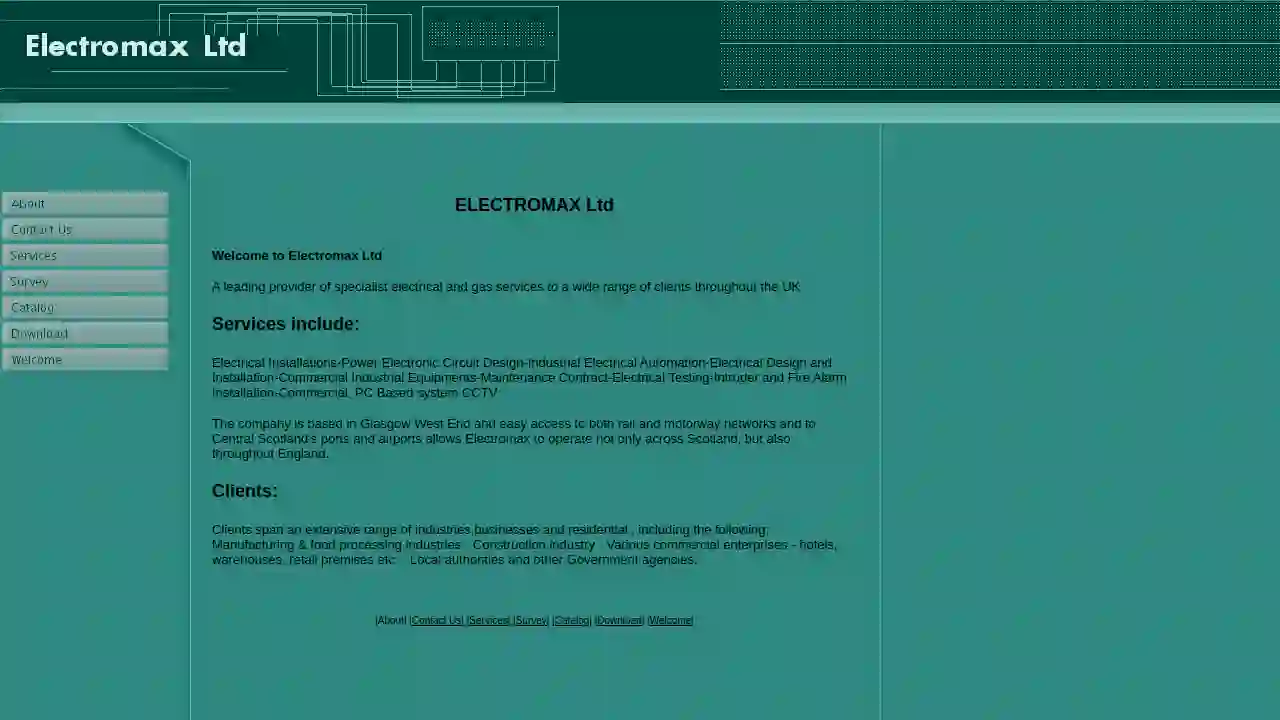
Electromax Ltd
54 reviews12 Colquhoun Dr, Bearsden, g61 4nq, GBELECTROMAX Ltd is a leading provider of specialist electrical and gas services to a wide range of clients throughout the UK. Based in Glasgow West End, the company's convenient location with easy access to rail and motorway networks, as well as Central Scotland's ports and airports, allows them to serve clients not only across Scotland but also throughout England. ELECTROMAX Ltd caters to a diverse clientele spanning various industries, businesses, and residential sectors, including manufacturing and food processing, construction, commercial enterprises (hotels, warehouses, retail), local authorities, and government agencies.
- Services
- Why Us?
- Our Team
- Gallery
Get Quote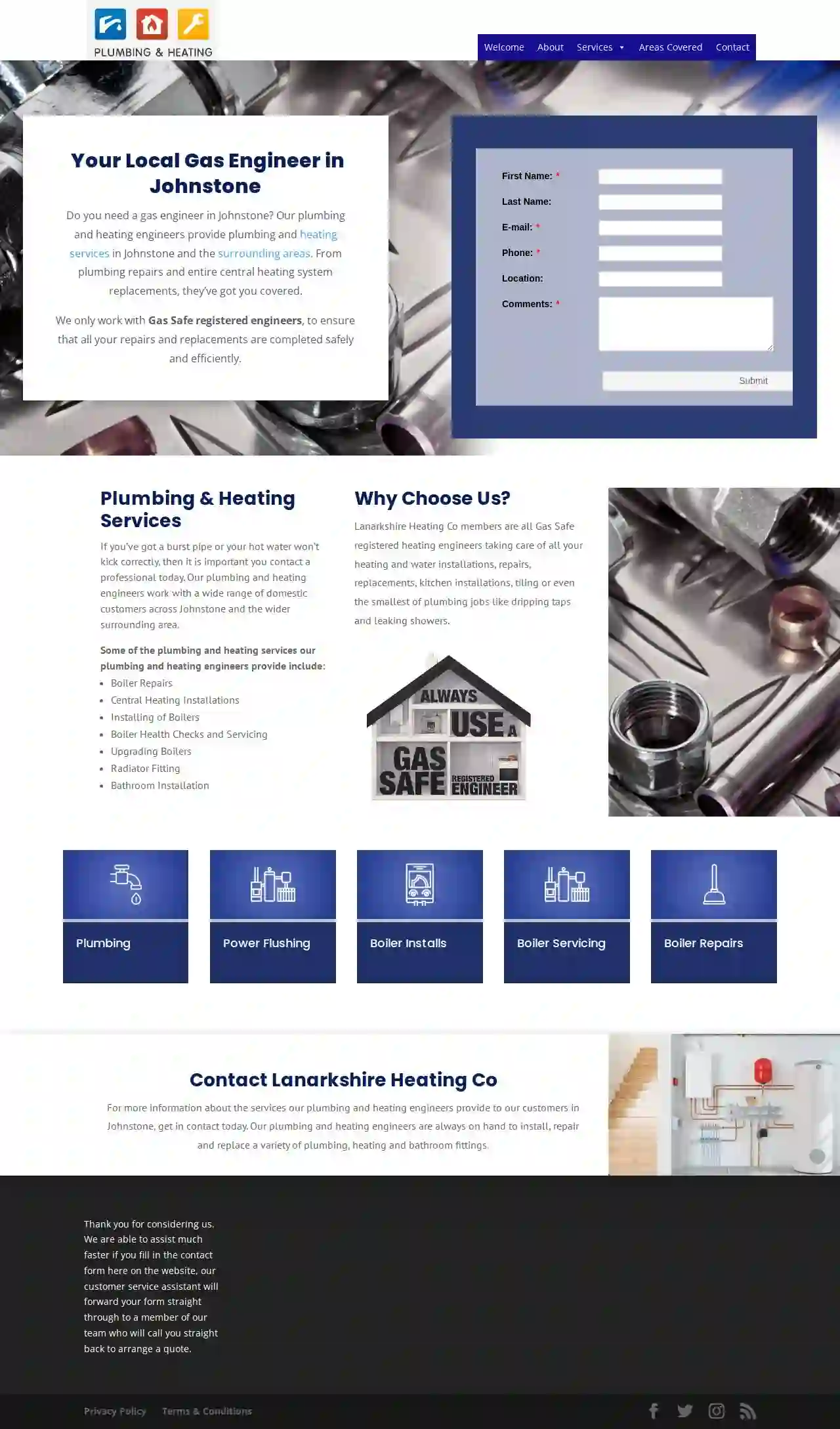
Kilbarchan Maintenance Services Ltd
3.76 reviewsUnit 1, 100-102 Main Street, Johnstone, ML1 2AA, GBLanarkshire Heating Co is your trusted source for plumbing and heating services in Lanarkshire and the surrounding areas. Our team of Gas Safe registered engineers is dedicated to providing safe, efficient, and reliable solutions for all your home comfort needs. Whether you require a simple repair, a complete system replacement, or expert advice on upgrading your boiler, we've got you covered. From burst pipes and faulty boilers to central heating installations and bathroom renovations, our experienced engineers handle it all with professionalism and care. We understand the importance of a comfortable and functional home, and we strive to deliver exceptional service that exceeds your expectations.
- Services
- Why Us?
- Accreditations
- Gallery
Get Quote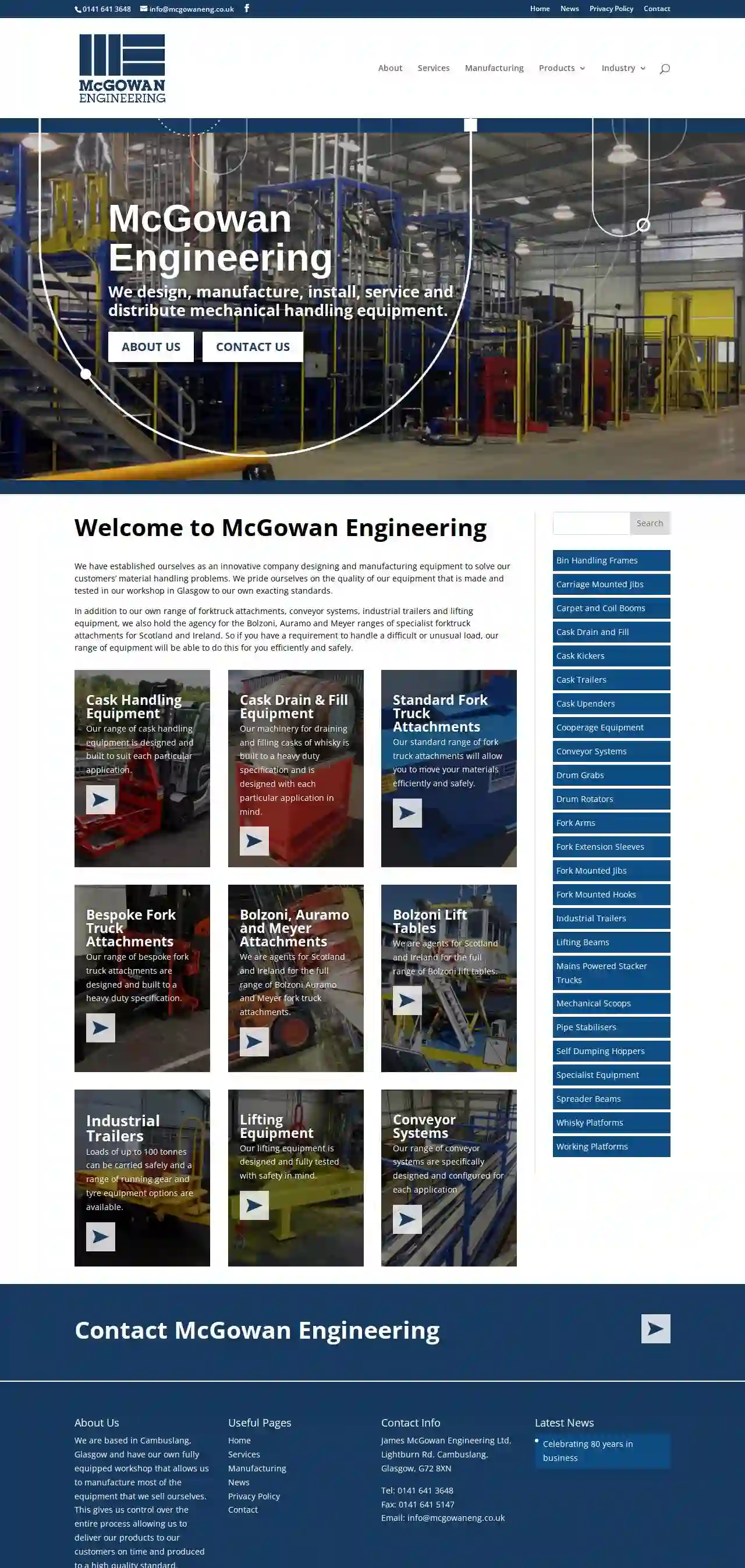
James McGowan Engineering Limited
51 reviewsCambuslang, Lightburn Rd, Glasgow, G72 8XN, GBMcGowan Engineering is a company that designs, manufactures, installs, services, and distributes mechanical handling equipment. We have established ourselves as an innovative company designing and manufacturing equipment to solve our customers' material handling problems. We pride ourselves on the quality of our equipment that is made and tested in our workshop in Glasgow to our own exacting standards. In addition to our own range of forktruck attachments, conveyor systems, industrial trailers, and lifting equipment, we also hold the agency for the Bolzoni, Auramo, and Meyer ranges of specialist forktruck attachments for Scotland and Ireland. We are based in Cambuslang, Glasgow, and have our own fully equipped workshop that allows us to manufacture most of the equipment that we sell ourselves. This gives us control over the entire process, allowing us to deliver our products to our customers on time and produced to a high quality standard.
- Services
- Why Us?
- Our Team
- Gallery
Get Quote
Systemair Fans & Spares
4.510 reviewsBirmingham, B24 8HZ, Unit 28, Gravelly Industrial Park, GBSystemair is a leading manufacturer of air handling units, fans, and ventilation systems. Our products are designed to provide comfortable, well-ventilated indoor environments. We offer a wide range of solutions for various industries, including commercial, industrial, healthcare, education, and hospitality.
- Services
- Why Us?
- Gallery
Get Quote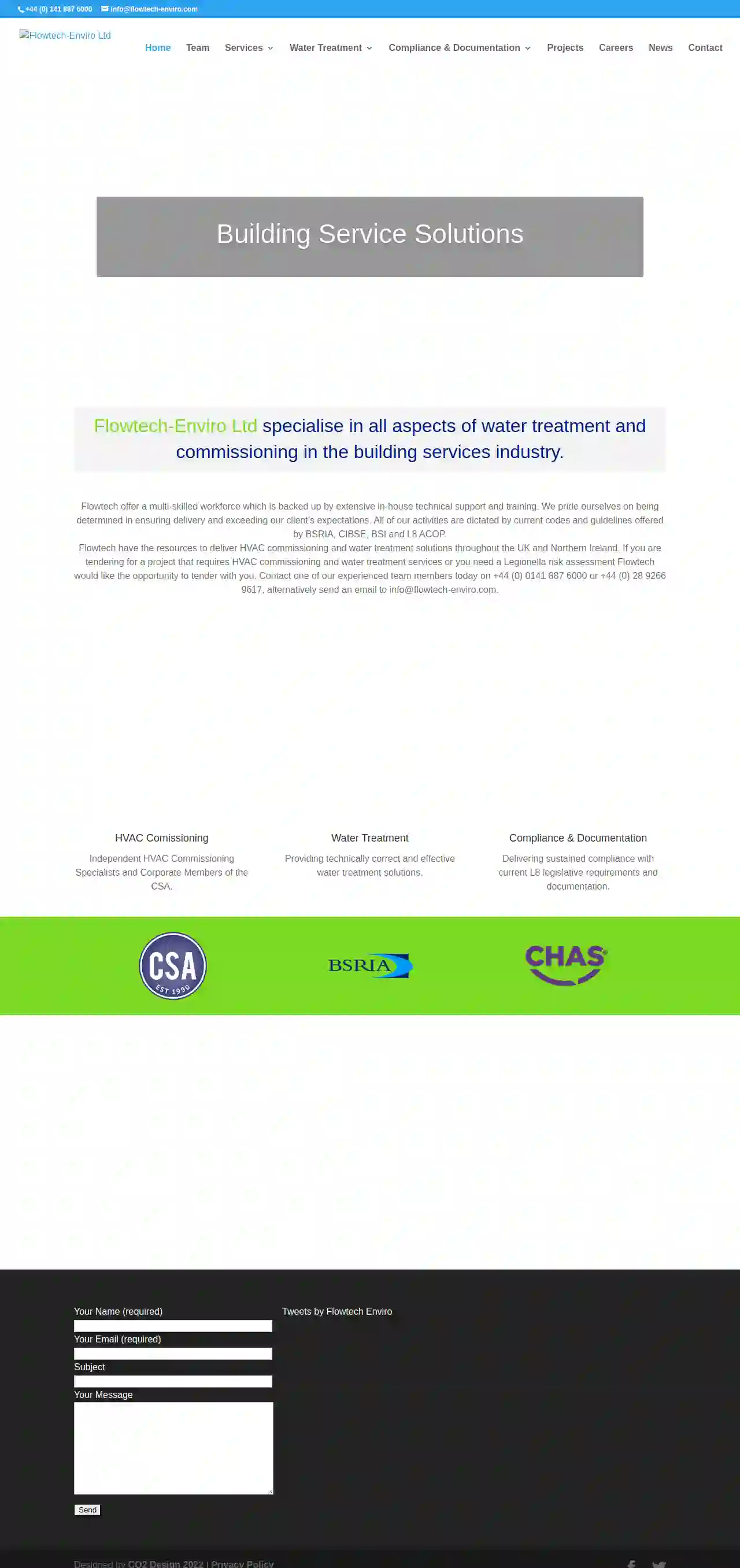
Flowtech-Enviro Ltd
3 East Lane, Paisley, PA1 1QA, GBFlowtech-Enviro Ltd specialise in all aspects of water treatment and commissioning in the building services industry. Flowtech offer a multi-skilled workforce which is backed up by extensive in-house technical support and training. We pride ourselves on being determined in ensuring delivery and exceeding our client’s expectations. All of our activities are dictated by current codes and guidelines offered by BSRIA, CIBSE, BSI and L8 ACOP.
- Services
- Why Us?
- Accreditations
- Gallery
Get Quote
WM. Donnelly & Co. Ltd
4.6390 reviewsMyra House, 15 Law Place, Nerston Industrial Estate, East Kilbride, G74 4QL, GBWm. Donnelly & Co. Ltd. is a family-run business with over 60 years of experience providing exceptional plumbing, heating, electrical work, and boiler installation services to both domestic and commercial clients. We pride ourselves on our highly skilled team of professionals who are dedicated to delivering top-notch solutions tailored to meet your specific requirements. Whether you need assistance with a leaky faucet, a complex heating system installation, electrical repairs, or a new boiler, our team is here to help. We are committed to providing clear, upfront pricing with no hidden costs, ensuring complete transparency for our valued customers.
- Services
- Why Us?
- Accreditations
- Gallery
Get Quote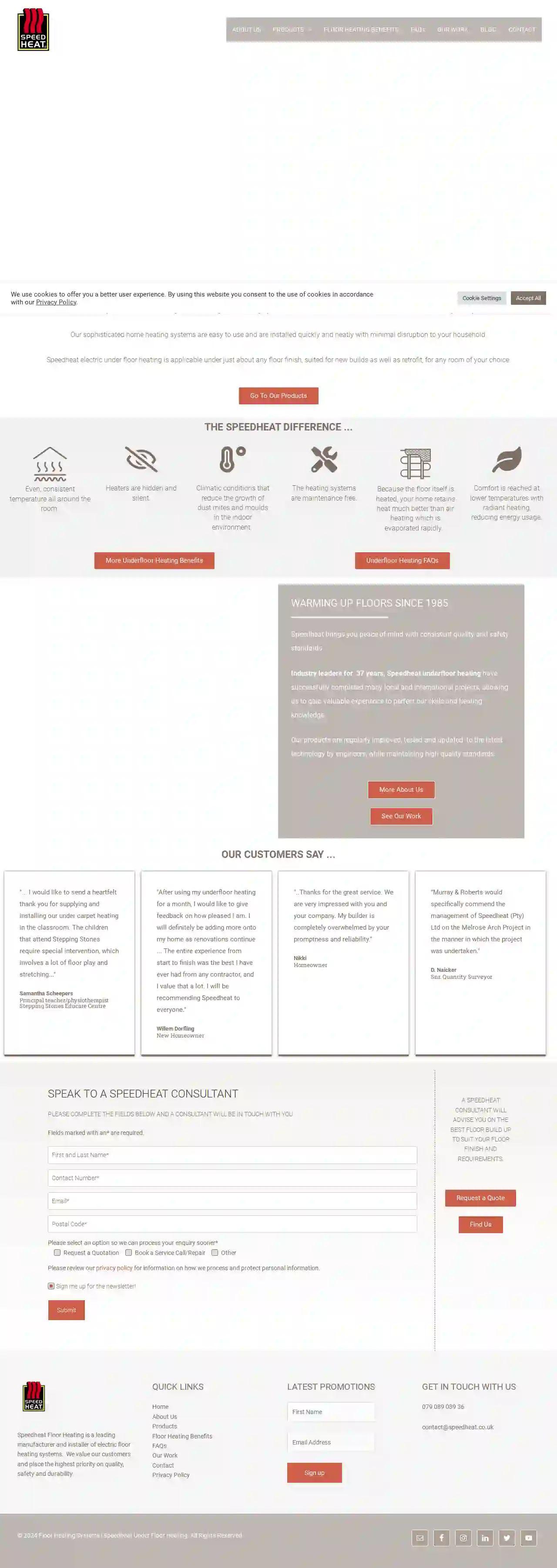
Speedheat UK Ltd
46 reviewsNot specified on the website, GBSPEEDHEAT is a leading manufacturer and installer of electric floor heating systems with over 37 years of experience. We are passionate about providing warm floors and have a deep understanding of radiant floor heating. Our sophisticated home heating systems are easy to use, installed quickly and neatly with minimal disruption. Speedheat electric underfloor heating is suitable for various floor finishes, new builds, and retrofits, making it ideal for any room. We pride ourselves on consistent quality, safety, and durability. Our products are regularly tested and updated to the latest technology by engineers, ensuring high standards. We have successfully completed numerous local and international projects, gaining valuable experience and expertise.
- Services
- Why Us?
- Accreditations
- Our Team
- Testimonials
- Gallery
Get Quote
Over 12,692+ HVAC Contractors on our platform
Our HVAC companies operate in Lennoxtown and beyond!
HVACCompaniesHub has curated and vetted the Best HVAC Businesses in Lennoxtown. Find a top & reliable business today.
Frequently Asked Questions About Boiler Installation
- Combi Boilers (Combination Boilers): Most common and provide both heating and hot water instantly , They are compact and ideal for smaller spaces. If you use a lot of hot water, consider other options.
- Regular Boilers (Conventional, Heat-Only Boilers): More complex systems that involve both a storage tank and a hot water cylinder. If you have multiple bathrooms or high hot water demand, then this is a good choice.
- System Boilers: These boilers heat your central heating directly and also store hot water in a cylinder. They are more compact than regular boilers but more expensive than combi boilers. . Homes with two or more bathrooms benefit from this type of system.
- Condensing Boilers: High-efficiency boilers that improve energy efficiency by reusing heat from the flue gases. These are more expensive initially but reduce energy consumption and operating costs.
What is a combi boiler?
How do I bleed my radiators?
What are the different types of boilers?
How do I reset my boiler?
What is a combi boiler?
How do I bleed my radiators?
What are the different types of boilers?
- Combi Boilers (Combination Boilers): Most common and provide both heating and hot water instantly , They are compact and ideal for smaller spaces. They may struggle to meet high hot water demand for larger households.
- Regular Boilers (Conventional, Heat-Only Boilers): More complex systems that involve both a storage tank and a hot water cylinder. They deliver a consistent supply of hot water but are usually less energy-efficient than newer boiler types.
- System Boilers: These boilers heat your central heating directly and also store hot water in a cylinder. They are generally a good middle ground between other options. Homes with two or more bathrooms benefit from this type of system.
- Condensing Boilers: Highly efficient units that improve energy efficiency by reusing heat from the flue gases. These are more expensive initially but reduce energy consumption and operating costs.